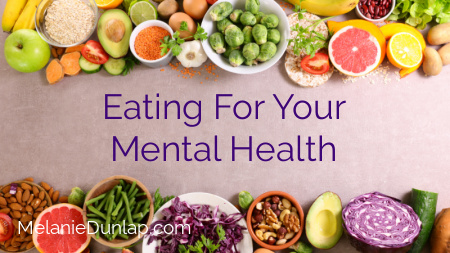Many of us are concerned about our mental health as we spend more time in our homes and limit social interactions. The good news is you can use food to nourish yourself and keep yourself happy, healthy, and sane!
Eat a healthy diet regularly. Your body can’t perform at its peak if you deny yourself food. Brain fog, exhaustion, and headaches may all be side effects of skipping too many meals.
To ensure that your body gets the nutrients it needs, eat various foods throughout the day. As a result, your blood sugar levels will remain constant, and you will feel more energetic.
Fiber is critical for good mental health and a steady supply of energy. Fortunately, many of the everyday items in your kitchen are rich in fiber, including beans, lentils, frozen peas, and whole grains like barley or quinoa.
Make sure you drink plenty of water.
Keep your cells healthy and energized by drinking enough water and herbal teas. The fact that thirst might be confused for hunger means that staying hydrated could prevent you from overeating. Water is important for optimal hormone and brain function.
Eat a rainbow of fruits and vegetables.
Whole foods of every color, such as red tomatoes, orange carrots, yellow onions, bananas, green spinach, and red cabbage, should be included in your diet daily to ensure that you obtain a broad spectrum of nutrients.
Don’t get a sugar rush.
When you’re feeling down, it’s easy to grab the chocolate and sugary snacks. Sugary foods give you a temporary burst of energy, but they can cause a crash, leaving you feeling much worse. Slow-release energy sources include healthy grains and fresh fruit with protein and fat; a fast and simple choice is an apple with peanut butter.
Snack on a few squares of dark chocolate.
When endorphins, the brain’s natural “feel-good” chemicals, attach to receptors in the brain, the result is euphoria, comparable to that experienced after engaging in strenuous physical activity. They also help alleviate pain and minimize the detrimental consequences of stress. Dark chocolate is a mood booster, but it’s also high in antioxidants and good for your brain.
Make a plan in advance.
Meal planning saves time at the grocery store and utilizes what you already have at home. Make a general plan for the next week’s meals, mixing cupboard staples with some fresh ingredients as early as possible in the week.
Prepare food for (or with) others.
There are several psychological advantages to cooking for others, such as enhancing one’s self-esteem and raising happiness. It doesn’t have to be anything elaborate; you can just FaceTime a friend while making a great pasta meal, or you and your spouse may work together to master a new recipe.
Cook with awareness.
It is no accident that the term “mindfulness” has grown so popular in the mental health community. Allowing your mind a rest by forcing yourself to focus only on the tasks at hand is an excellent approach to recharge your battery. When I cook, I try to focus my attention on the task at hand and be present at the moment. In the case of clumsy chefs, this approach also reduces the risk of cuts and burns.
Pay attention to what you’re putting in your mouth.
Try to eat mindfully at least once a day. Take a break from electronic distractions and savor each bite. You made it, so savor every last morsel! Reconnecting with your loved ones over dinner is a terrific way to improve your mental health, and it’s also a great way to get to know them better. FaceTime or Zoom are great tools to create a long-distance group meal.
When you lovingly preparing your food it will love you back!

Thank you so much for all your posts. They are always filled with great information.
Blessings and Love,
Deborah